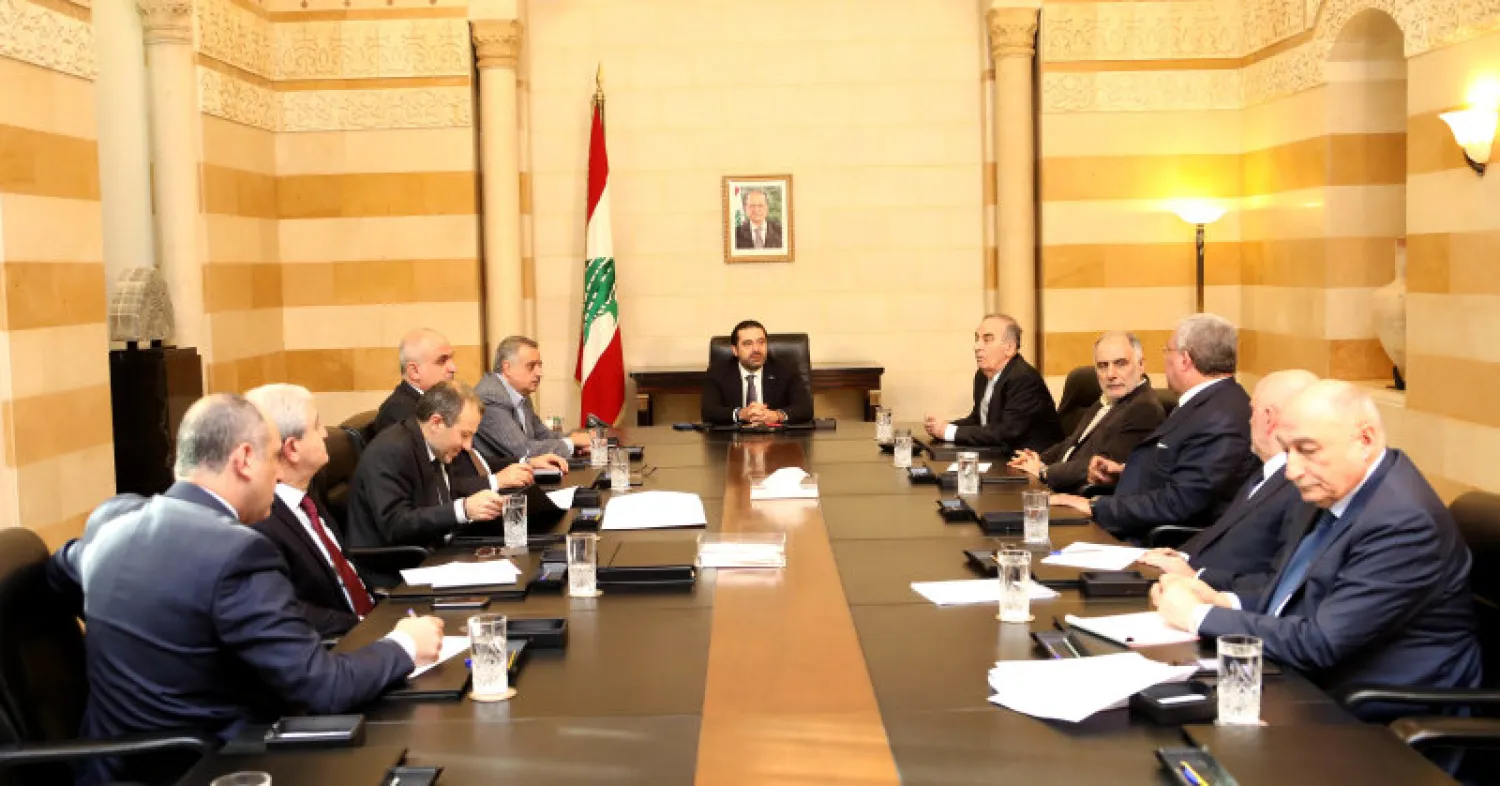Members of the ministerial committee charged with examining the implementation of the new electoral law have admitted that it was impossible to apply the technical reforms stipulated in the law, with the parliamentary elections due on May 6.
While the committee’s meeting on Tuesday, chaired by Prime Minister Saad Hariri, did not result in any decision on the matter, ministers have expressed clear stances towards the implementation of the reforms, in the wake of sharp disputes over the adoption of the biometric voting card and the mega center, which allows voting in place of residence.
Ministerial sources told Asharq Al-Awsat that differences persisted over technical reforms, pointing out that any amendment in the law “requires prior agreement before submitting it to Parliament – a task that seems difficult so far.”
In remarks to Asharq Al-Awsat, Researcher at Information International Mohammed Shamseddine said that the amendment of the law was required only if the government submitted a bill to adopt the magnetic cards to the Parliament and not vice-versa, because the law does not stipulate the adoption of the cards.
Foreign Minister Jebran Bassil, however, said: “There is a mandatory amendment to the law because [the magnetic cards] are not done; otherwise the election results could be challenged.”
“The law obliges the government to apply the magnetic card; in order to cancel it, a draft amendment law must be agreed on in advance,” he stated.
For his part, Shamesddine said: “Article 84 of the law stipulates that the government – by a decree issued by the Council of Ministers with a two-thirds majority - shall adopt the magnetic card and propose the necessary amendments to the Parliament.”
He continued that the subject of the magnetic card “expired a while ago, and all that is said about negotiations and talks on this issue is worthless, because of the impossibility of the completion of about 3 million cards within two months.”
“If the authorities really wanted to add more important reforms to the law, they would have reduced the voting age, approved quotas for women, and set controls on financial spending, but the behavior of the political parties confirms the lack of no intention for any reforms,” Shamseddine told Asharq al-Awsat.
Finance Minister Ali Hassan Khalil, a member of the Amal movement, clearly announced that the mega centers and biometric cards would not be adopted.
“Our priority is to hold the elections on time, on May 6,” he said.
Minister of Youth and Sports Mohammed Fneish, who is affiliated with “Hezbollah,” also said: “It is impossible to establish the mega center before the elections.”
The Lebanese Forces Party (LF), however, insisted on the establishment of the mega center. LF Minister of Social Affairs Pierre Bou Assi said in this regard: “Our position is clear and we support the idea of establishing the mega center because it allows citizens to vote in their places of residence.”
Political Differences in Lebanon Undermine Electoral Reforms

Prime Minister Saad Hariri chairs a ministerial committee’s meeting on Tuesday (Dalati & Nohra)

Political Differences in Lebanon Undermine Electoral Reforms

Prime Minister Saad Hariri chairs a ministerial committee’s meeting on Tuesday (Dalati & Nohra)
لم تشترك بعد
انشئ حساباً خاصاً بك لتحصل على أخبار مخصصة لك ولتتمتع بخاصية حفظ المقالات وتتلقى نشراتنا البريدية المتنوعة







